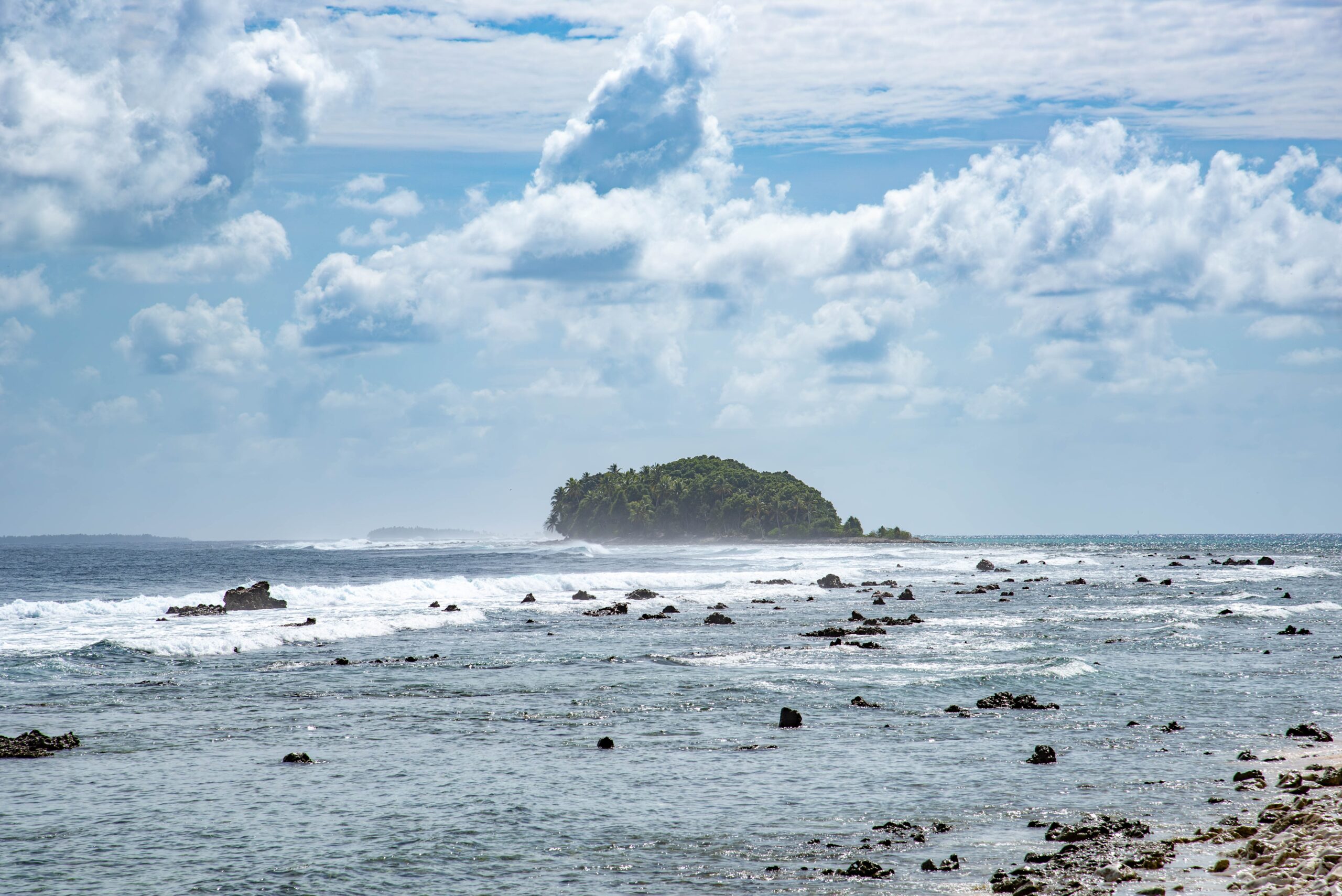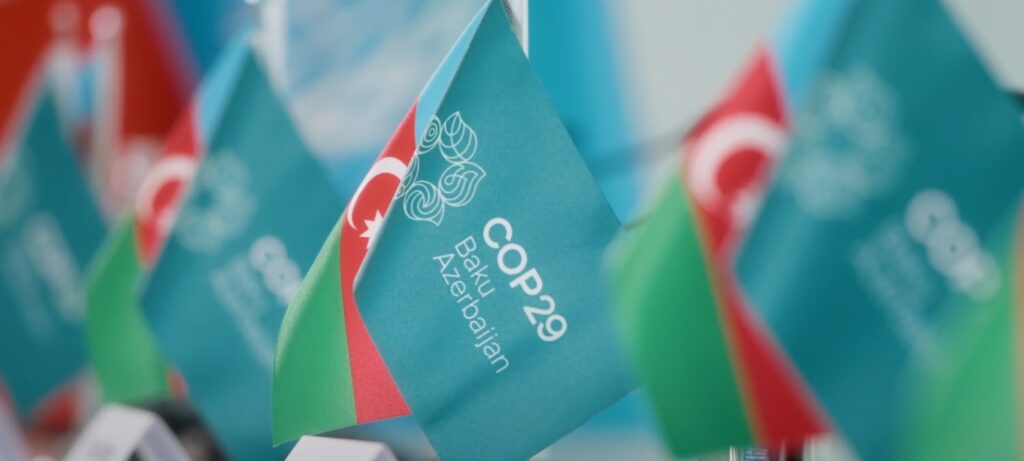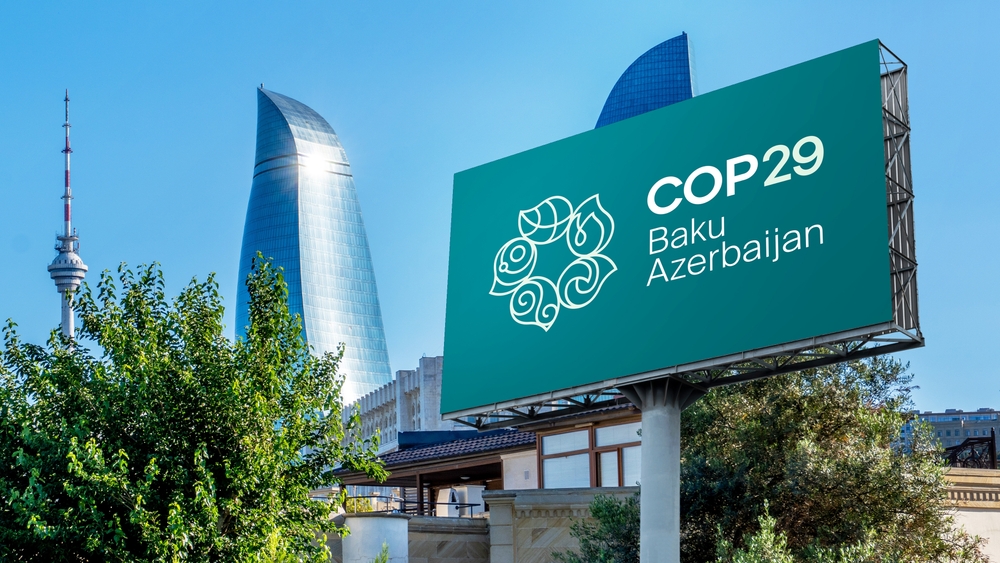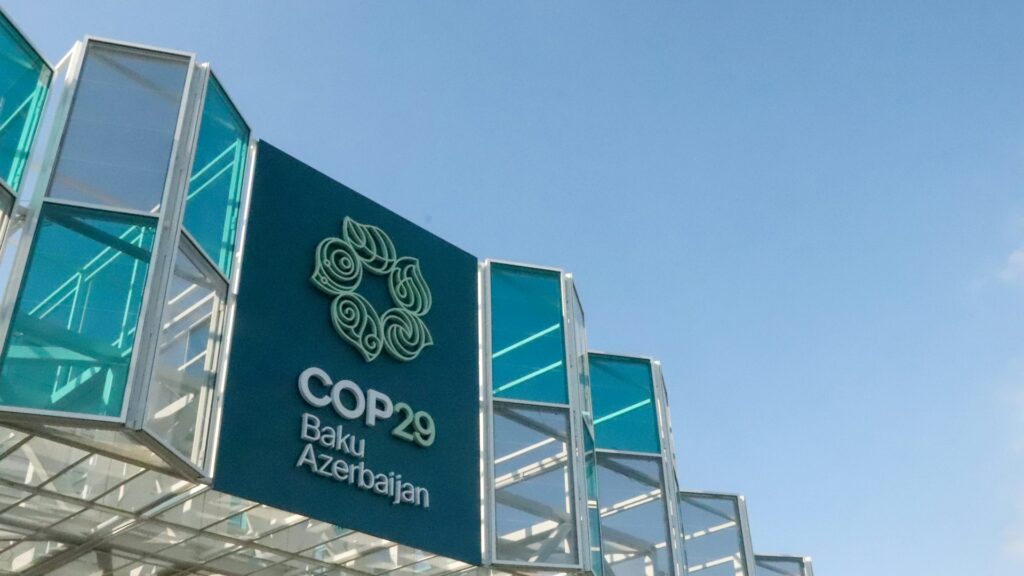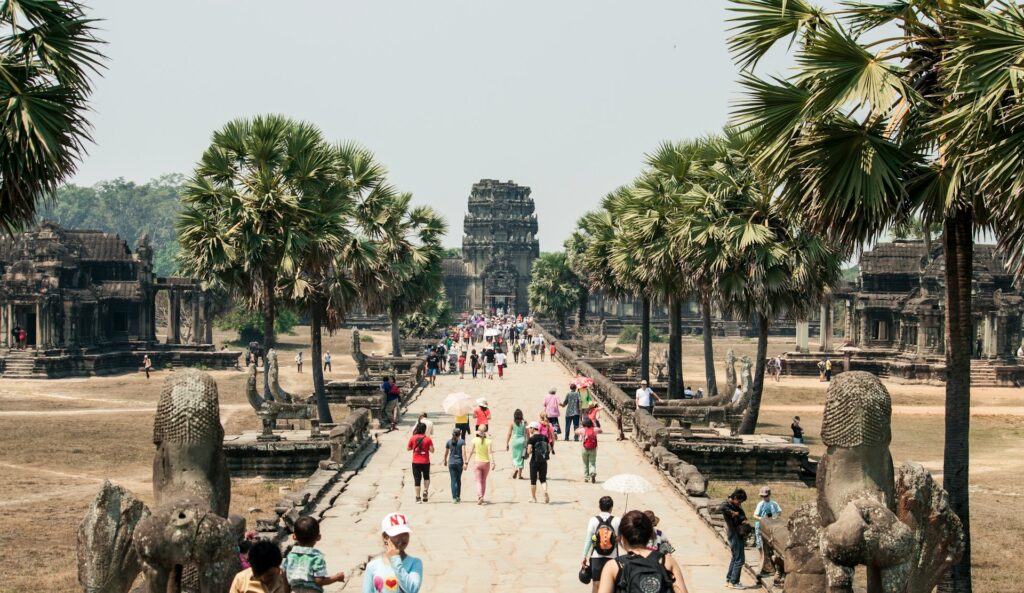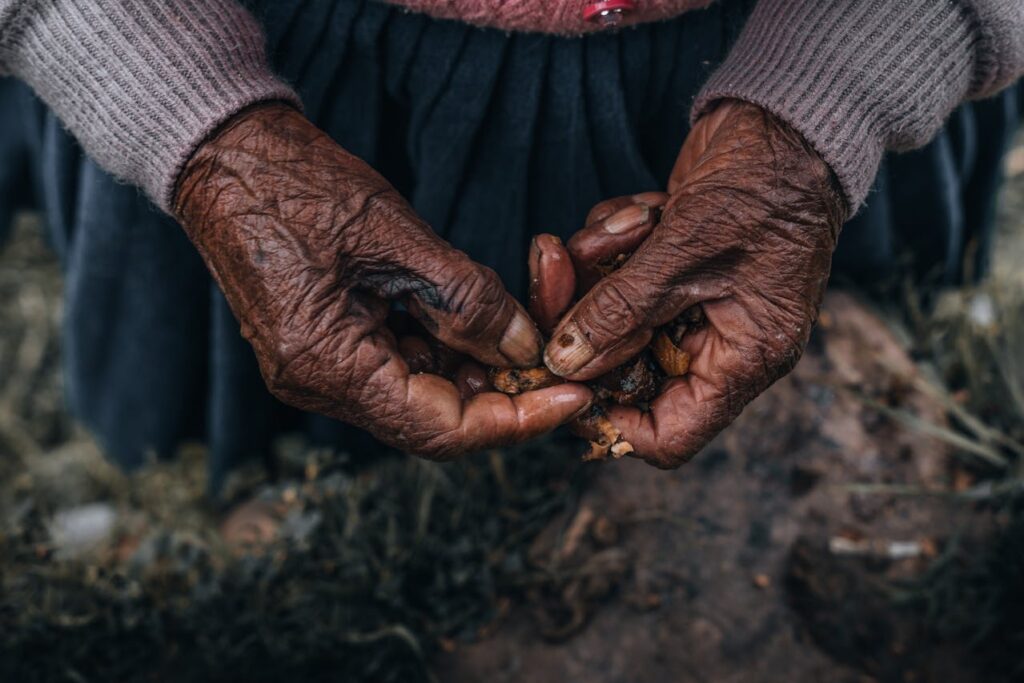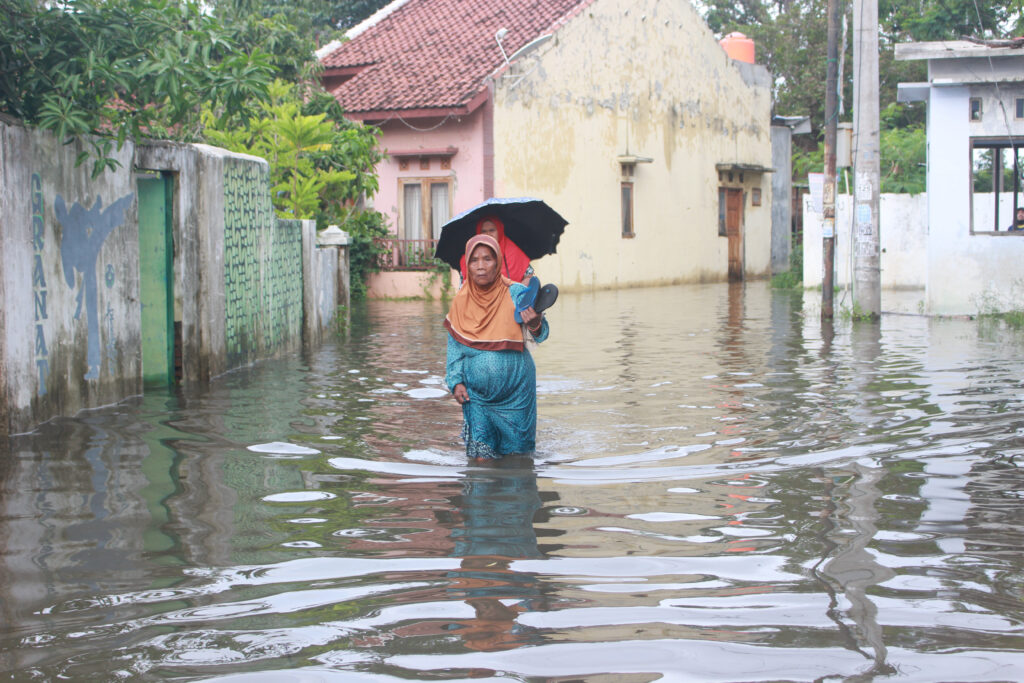The decisions at COP29 2024 — including on loss and damage — are of existential importance for Pacific Island nations. Low-lying island communities are already experiencing irreversible climate impacts, including loss of livelihoods, culture and ancestral lands. Rapidly reducing greenhouse gas emissions is paramount, as is delivering support to address the devastating impacts already here and those already unavoidable in the future.
Pacific Island nations have long advocated for stronger global action, and time is running out. “While we fight for our people in negotiating rooms year after year, the incremental progress made on addressing the climate crisis falls far behind the actual losses endured by the women, men and children of our vulnerable small island developing states,” said Samoa’s Minister of Natural Resources and Environment Toeolesulusulu Cedric Schuster. This year is a critical year, as we must peak global emissions before 2025 to avoid the worst scenarios of increased storms, drought, rising sea levels, and other devastating impacts, he said. “The era of implementation is upon us and we cannot miss this precious window to write a better chapter for our world.”
The Climate Crisis Has Arrived With the Worst Yet to Come
Climate change is impacting the Pacific Islands more harshly and rapidly than anywhere else in the world. Many islands are low-lying, with sea-level rise predicted to submerge entire nations. At the current rate, many of these islands will be lost entirely by the end of the century — if not sooner. An even more imminent threat is the tidal surges that reach far onto the shore, contaminating groundwater with saltwater — often the sole freshwater source for inhabitants. Some nations may therefore run out of fresh water long before the islands disappear under the rising seas.
In addition, frequent extreme weather events, such as cyclones and droughts, are causing widespread damage to infrastructure, livelihoods and food security for island nations and vulnerable communities. The United Nations Development Programme (UNDP) estimates that from 1970 to 2020, Small Island Developing States (SIDS) lost USD 153 billion due to weather, climate and water-related hazards. This is a monumental loss, given that the average GDP for these nations is USD 13.7 billion.
Climate Change and Developing Countries
Climate change is not simply an environmental issue but a crucial matter of global justice. While facing these catastrophic impacts and losses, the Pacific Islands are responsible for less than 0.03% of global emissions. The longer the world delays on the issue of climate action and finance, the greater the toll and the bigger the injustice for these vulnerable nations and developing countries.
Climate Finance Needed to Safeguard Pacific Islands
While some climate impacts are already unavoidable, the faster the world reduces greenhouse gases emissions, the likelihood increases of stopping the damage. In March 2023, a bloc of six Pacific countries – Vanuatu, Tuvalu, Tonga, Fiji, the Solomon Islands and Niue – called for a global fossil fuel phaseout to meet the 1.5°C global warming target. A just and equitable exit from fossil fuels like coal, oil and gas is the most powerful climate change mitigation that would safeguard these islands from existential climate harm.
Meanwhile, wealthier nations must provide the necessary funding to safeguard people from the impacts already here and expected in the future. Kamal Amakrane, from the Global Centre for Climate Mobility, who has been helping the UN General Assembly prepare for COP29, explained that while people have “the right to remain” in their homelands, it’s equally important to ensure safe and dignified options for those forced to relocate.
Creating these migration pathways and developing solutions to protect the islands will require major financing and support from developed countries. For example, Kiribati is seeking billions of dollars from foreign donors to raise its islands and escape the worst harms of rising seas. Meanwhile, Tuvalu has entered an agreement with Australia that offers 280 Tuvaluans – 2.5% of the islands’ population – permanent residency in Australia each year. The agreement stems from recognising that climate change endangers Tuvalu’s long-term future.
For climate finance provision that supports island adaptation and loss and damage, tailored strategies are essential to address the distinct challenges faced by these frontline nations, explained Satya Tripathi, secretary-general of the Global Alliance for a Sustainable Planet. Policies should focus on enhancing resilience, strengthening food, water and energy security, and promoting ecosystem restoration through nature-based solutions and climate-resilient agricultural practices, said Mr. Tripathi.
COP29 Loss and Damage: Solidarity With Pacific Island Nations
While Pacific Island communities are mobilising with local-level climate action and adaptation, the burden of the climate crisis and its impacts is not their burden to bear alone. The annual USD 100 billion in financial pledges to loss and damage fund that wealthy nations pledged in 2020 was met two years late — to the detriment of those most harmed by the climate crisis.
At COP29 Azerbaijan in November 2024, countries are due to set a new funding target for climate finance provision. At September’s Climate Week in New York City, Schuster said that all nations — but particularly the G20 — must lead the way on emissions cuts and climate finance. “The vulnerable people of our world are drained by the lip service,” he said. Prime Minister of Vanuatu Charlot Salwai Tabimasmas also reiterated the need for urgent action: “The window for real action to restore the health of this planet is fast closing on all of us.”
Prime Minister of Tonga Siaosi’ Ofakivahafolau Sovaleni emphasised the centrality of justice and human rights to climate finance provision. “This is not just about losing land, it is about our very identities.” Urging the international community to put its stated desire to “leave no one behind” into practice, he said, “The advancement of one community or nation cannot occur in isolation from the well-being of others.”
Evelyn Smail
Writer, United Kingdom
Evelyn is a freelance writer and journalist specialising in climate science and policy, the just energy transition and the human impacts of climate change. She writes for independent publications, NGOs and environmental organisations. Evelyn has a background in sustainable development, climate justice and human rights.
Evelyn is a freelance writer and journalist specialising in climate science and policy, the just energy transition and the human impacts of climate change. She writes for independent publications, NGOs and environmental organisations. Evelyn has a background in sustainable development, climate justice and human rights.

